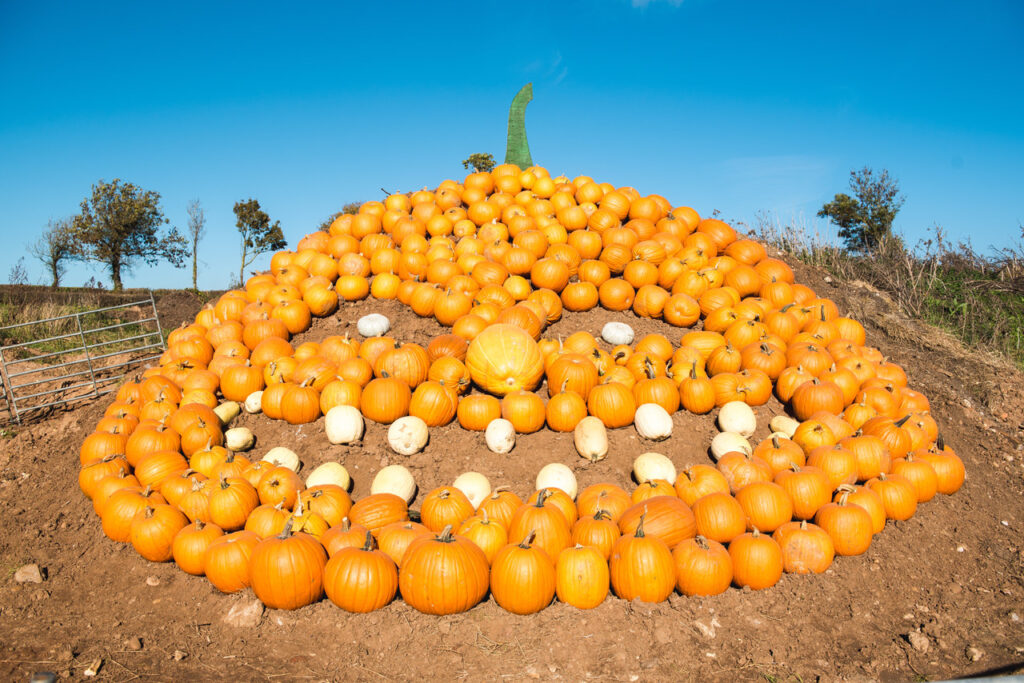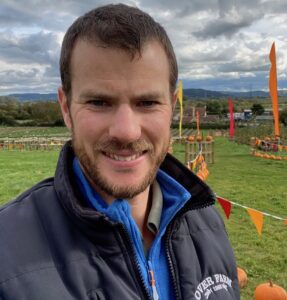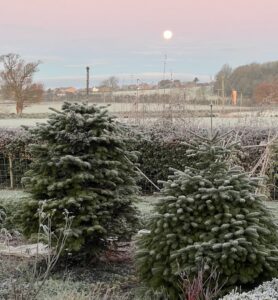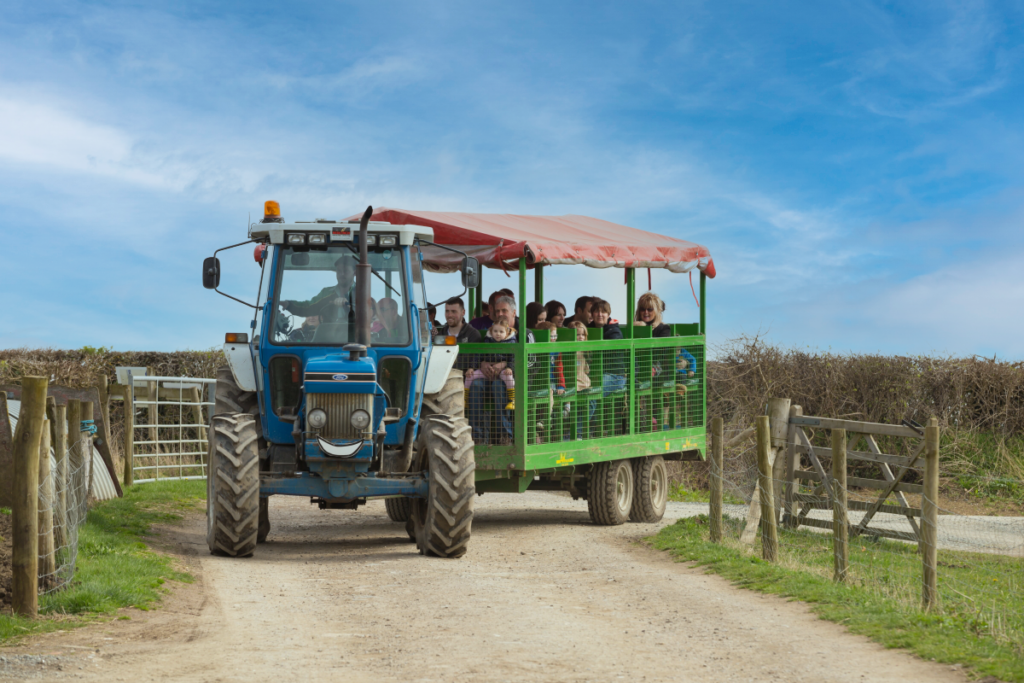Pumpkins offer an exciting future for diversified farm
22nd March 2023
As British farms increasingly look to generate new income streams, Farmers Guide spoke to Gloucestershire farmer Rees Keene about how he juggles multiple diversifications including pumpkins, Christmas trees, a farm shop, catering and hosting events.

© Rees Keene/Over Farm.
Fifth generation farmer Rees Keene grows around 170 acres of mainly pumpkins and soft fruit on a farm business tenancy with his neighbours. Over Farm, which is located about a mile west of the city of Gloucester also grows some asparagus, rhubarb and sweetcorn.
Over the years, as the farm has increasingly struggled to compete with supermarkets in its farm shop, it has introduced a growing number of different businesses. Juggling five businesses has been a real challenge, especially keeping on top of the finances, Rees says.
To help avoid oversights they do a monthly profit analysis and weekly reports, increasing to daily during their Halloween events.

Rees Keene farms 170 acres, growing pumpkins and soft fruit.
Challenges prompt new ventures
It dates back to the 1920s when Rees’s great great grandfather farmed arable crops and livestock.
At one point in the late 80s the farm was around 1,000 acres but by the early 2000s the business was being propped up by the farm shop and diversifications due to challenges facing arable farming at the time, Rees explains.
It was then that they began branching out with further diversifications, including growing Christmas trees for retail, and hosting Easter and Halloween events such as Frightmare and Spookyard (aimed at 2–8 year olds), which have become increasingly popular over the years.
With the farm shop struggling to compete with supermarkets, Over Farm has continued to develop its diversifications over the years, adding a wedding venue in 2010, catering business, and last year a farm park which incorporates ‘pick your own’.
The farm’s most successful and well-known diversification, PYO pumpkins, got started because it was struggling to compete with cheap pumpkins being sold in supermarkets. They began offering a PYO and pumpkin carving experience for a small extra fee.

Over Farm also grows Christmas trees for retail. © Rees Keene
They had a wakeup call in 2020, Rees says, as despite the covid-19 pandemic preventing them from running the Halloween events, they bought more pumpkins in 2020 than they had sold in 2019. This success has continued beyond the pandemic, Rees says.
“That was kind of a wakeup call that pumpkins were going to be really successful for us, so we build on it the following year and will do so again this year, which is quite exciting.”
Passion is key for new businesses
Diversification is a big change for anyone who’s a farmer at heart and while you can apply your learned business acumen, everything else will be different, Rees advises.
For those planning a new venture he says: “Although it’s obvious, doing your homework and making sure of your finances are in order will be essential. Also making sure that the business is something you really want to do, because you’ll have to put in a lot more work than you can ever believe would be necessary.
“So if it’s not your passion and you’re not fully on board, maybe it’s not the right choice.”
Talking to other farmers and seeking support from relevant organisations such as the National Farm Associations’ Network and the Farm Retail Association is a good idea, he adds.
“The members are often very open and will talk a lot about the challenges they had to overcome via WhatsApp and Facebook groups. That is probably better than relying on support from official channels or trying to rely on the government to point you in the right direction.”

Over Farm’s Halloween events have become increasingly popular over the years. © Rees Keene
Key issues facing farmers
Farmers have faced a range of challenges in recent years, from the fall outs of Brexit, covid-19 and the Ukraine war to the cost-of-living crisis and avian influenza outbreak.
Added to this is the phase out of subsidies and, as Rees points out, the loss of plant protection products making it difficult for growers to be profitable. “Suddenly a product is wiped out that we knew allowed us to generate X amount of profit, and we need to put more of other products on or potentially look at other methods such as insects which cost more.”
These issues are pushing more farmers to diversify in order to generate revenue, yet many are facing problems here too as a result of red tape in the planning process.
A big question, Rees says, is which direction does the government and country as a whole want farmers to go in? Is it food production or diversification?
Difficulties with the planning system were recently demonstrated very publicly in the latest series of Clarkson’s Farm, which highlights Jeremy Clarkson’s unsuccessful attempts to open a farm restaurant and build a car park for his popular on farm shop.
Plans for the future
Looking ahead to the future, Rees says he is interested in exploring glamping. The site already has some accommodation with four bedrooms available for weddings but Rees believes they could offer a more flexible experience with glamping.
Offering an indoor play area at the farm park for poor weather days is another area Rees plans to look at in future, as well as potentially something Christmas focused. However, with Halloween being such a busy time on the farm, acquiring sufficient staff for Christmas events could be a challenge.
For more diversification stories click here.

